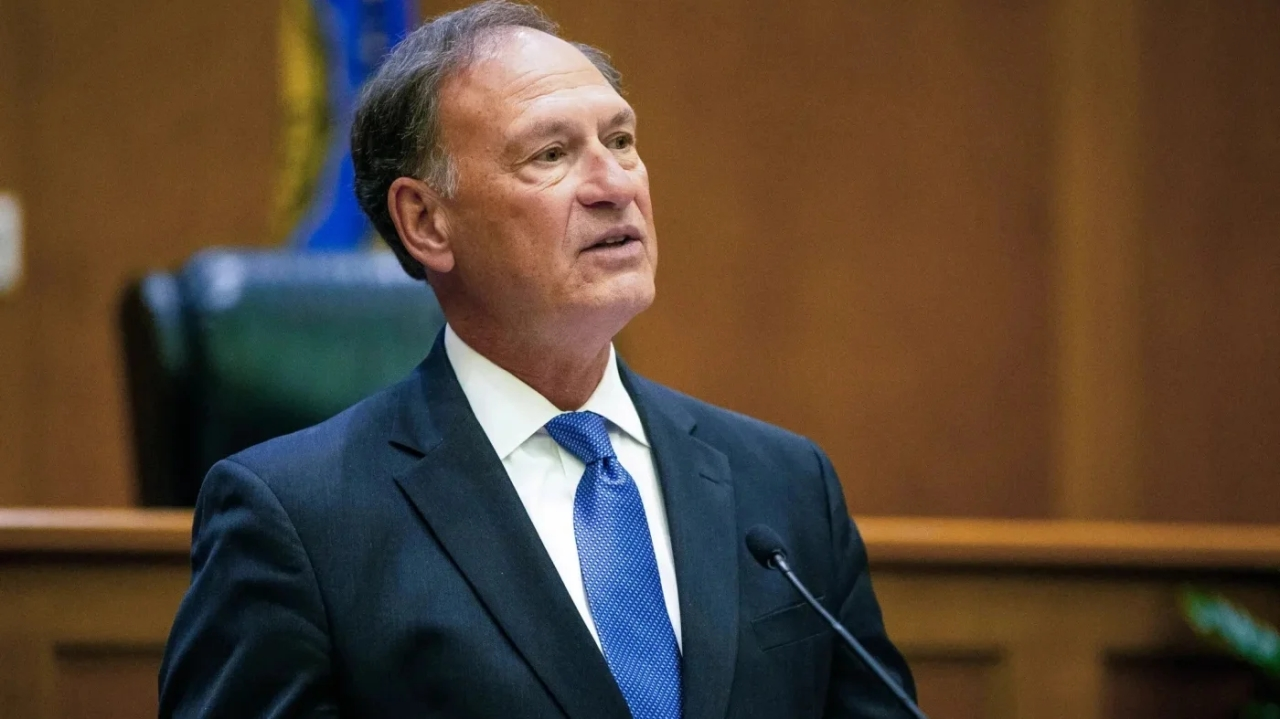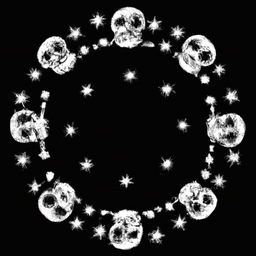Justice Samuel Alito said in an interview that Congress does not have the authority to regulate the Supreme Court, pushing back against Democratic efforts to mandate stronger ethics rules for the justices. Alito argued that the Constitution does not give Congress the power to regulate the Supreme Court. While Chief Justice John Roberts has also questioned Congress’s ability to act, he was not as definitive as Alito. Some Democrats rejected Alito’s reasoning, arguing that the Supreme Court should be subject to checks and balances. The ethics push comes after recent revelations about undisclosed trips and other ethics issues involving several Supreme Court justices.
We’ve gone from “we’re not corrupt” to “you can’t do anything about it”. He’s not denying the corruption at all anymore.
What’s crazy is that all that was asked is that they disclose gifts and, if lavish gifts do come from someone about to participate in a case before the court, they maybe recuse themselves. It’s not even that the gifts need to stop.
It really reveals nakedly what they’re about.
it didn’t even go that far. Alito said “the court has rules that justices have to abide by”. We said “What are they?” and now he’s acting like a comic book villain.
So fun fact about the Supreme Court, no where in the constitution does it say they have the right to strike down laws for being “un-constitutional” they just kind of have them selves that right.
So you know… fuck’em
the Constitution does not give Congress the power to regulate the Supreme Court
Correct me if I’m wrong, but I don’t think the Constitution gives the Supreme Court most of the authority that it has given itself either.
That’s correct. The Court decided in Marbury v. Madison that it ought to have the power of judicial review. Lo and behold…
You stand corrected.
No, they do not stand corrected because what they wrote was correct, not corrected by someone else
You stand corrected when you make a statement and someone says no, it’s xyz. You stand corrected, acknowledging your mistake
I guess “checks and balances” means nothing, then. What happens when congress passes laws to regulate them and they just say “nuh uh that’s unconstitutional” when it’s obviously and demonstrably not?
This is what happens.
There are plenty of times when they say stuff that is blatantly unconstitutional is constitutional as well
My guy Sammy probably thinks ‘checks and balances’ are concerning his bank account.
He’s flat out lying.
US Constitution Article 3, first fucking line:
Section 1
The judicial Power of the United States, shall be vested in one supreme Court, and in such inferior Courts as the Congress may from time to time ordain and establish. The Judges, both of the supreme and inferior Courts, shall hold their Offices during good Behaviour, and shall, at stated Times, receive for their Services, a Compensation, which shall not be diminished during their Continuance in Office.
I also would like to point out the “good Behaviour” clause in the next line that determines the length of a justice’s tenure, and under which Alioto has clearly disqualified himself from serving as a justice.
in one supreme Court, and in such inferior Courts as the Congress may from time to time ordain and establish.
I could see it being argued that this mentions (1) “one supreme Court” and (2) “such inferior Courts as the Congress may from time to time ordain and establish,” so the bit about Congress applies only to the inferior courts.
Except that it’s never worked that way throughout the history of United States.
The Supreme Court itself is established by an act of Congress, the Judiciary Act of 1789. The Congress has always had the power to not only set the number of justices (last paragraph on that link), but to impeach them as well.
A misplaced comma doesn’t trump 240 years of legal precedent, no matter how much Alioto might wish it did.
A misplaced comma doesn’t trump 240 years of legal precedent, no matter how much Alioto might wish it did.
Fortunately true.
Unfortunately, in the larger court of public opinion, it can very effectively be used as basis to rile up and outrage the domestic terrorists loyal to the corrupted judiciary, so there will most likely be some trepidation about clarifying this.
How about we set the number to 0 and go from there.
We set it to √2 and let the fun begin.
Your bolded part just says they can create inferior courts. I don’t understand what point you’re making emphasizing it.
The sentence after that, not emphasized, the good behavior part, is already understood and judges in the federal court system can be, and have been, impeached.
That’s not true, it says the Supreme Court AND inferior courts
The constitution creates the supreme courts. The Congress can make inferior courts.
“The judicial Power of the United States, shall be vested in one supreme Court, and in such inferior Courts as the Congress may from time to time ordain and establish.”
Lemme cut the middle out of that sentence
The judicial Power of the United States, shall be vested in one supreme Court the Congress may from time to time ordain and establish.
Which is exactly what they do, they establish and ordain. https://en.m.wikipedia.org/wiki/Nomination_and_confirmation_to_the_Supreme_Court_of_the_United_States
Right, but the comma separates the “Constitution creates the supreme court” and the “Inferiors courts that Congress may establish.” Cutting out the middle removes key text.
It seems pedantic, but that’s exactly the argument that either has been or will be made, because that comma implies that the Supreme Court and “inferior courts” have separate sources that govern them.
You’re ignoring that congress does, in fact, ordain supreme court justices
That’s very much wrong, you can’t read english.
Ahh. See how you said that?
That’s very wrong, AND you can’t read English.
It’s both things in the same sentence. Like how there’s a supreme court, and lower courts which congress can ordain.
Hey dumbass. They “ordain” supreme court justices when they question them and vote on them before they’re appointed.
If it’s so wrong, why doesn’t the president just appoint them and done? It’s because you are actually reading it wrong. Congress DOES ordain the supreme court’s members. They do it in public for all to see.
Good behavior is generally used to justify lifetime tenure as a judge, unless impeached.
However, the Constitution does not guarantee lifetime tenure on the SCOTUS itself. Nothing prevents Congress from requiring a Justice to transfer to a lower court after, say, 18 years on the SCOTUS.
Well, except for the fact that acts of congress require legislation, which the supreme court can find unconstitutional.
Congress can write laws that the SCOTUS is not allowed to review. They’ve actually done this in the past
Do you have an example of this happening?
That’s not what’s happening here at all, this is not a case of a law congress proscribed the supreme court from ruling on, that’s a case of congress taking away appellate jurisdiction from the supreme court for a particular case, which it can do. You said congress can pass laws that the supreme court can’t review and has done it before, do you have an example?
Judicial review isn’t in the Constitution either.
That’s a very detail ignoring take on the matter but technically you’re right.
For context:
Judicial review exists because it makes sense. The framers decided to bind the government with a Constitution, but never explicitly wrote up an enforcement mechanism. The judiciary already interprets laws, so they get to be the enforcement mechanism by default.
The framers also decided to write “during good behavior” in Article III, but never defined what that means. Congress writes laws, so it’s logical to me that Congress gets to define what “good behavior” entails.
He’s not arguing in good faith. He knows if he says that out loud the right wing media will run with it like it’s fact. Then when it’s actually proven false the MAGAs will refuse to believe it.
deleted by creator
Agreed - it’s clear he’s just trying to throw out something to take the heat off. I hope that this particular mangling of the Constitution will backfire on him, because even a first year law student would find the argument facetious and self-serving at best, and it gives his critics further fuel to not only attack his position as justice, but grounds to call for disbarment.
You’re damn right he’s not arguing in good faith! 100%!
I saw an argument that the “necessary and proper” clause in Article I, Section 8 lays out the authority quite nicely:
Congress has the power “to make all Laws which shall be necessary and proper for carrying into Execution the foregoing Powers, and all other Powers vested by this Constitution in the Government of the United States, or any Department or Officer thereof”.
Article 3, Section 1 of the Constitution says Supreme Court Justices “shall hold their offices during good behaviour”. If Congress can define “militia” for the purposes of the Second Amendment, they can define “good behaviour” for this.
… then who the fuck does?
BillionairesFriends who take the Justices on vacation.Nobody. They are the Supreme Guardian Council, which is why I will only ever refer to the so-called “chief justice” as “Ayatollah Roberts”.
You joke but it is true. The justices on the court can be impeached, and their regulation is legislation, in that the court has to uphold the law unless it conflicts with the constitution, that’s the mechanism, they can’t be directly compelled.
Nothing in the Constitution limits the power of Congress over the federal government either. Kind of a stupid assertion. Also, it’s a dangerous game to play, because if Congress can’t “regulate” the courts then they are limited to impeachment tools.
Alito: congress can’t regulate us. But we can regulate congress and the executive branch.
Founding fathers: the fuck you just say?
The founding fathers wrote the constitution and then established judicial review. So I’d say theyre perfectly happy with the way that works.
The supreme court doesn’t regulate anything.
Deleto Alito
Delito.
He’s wrong.














